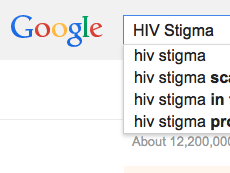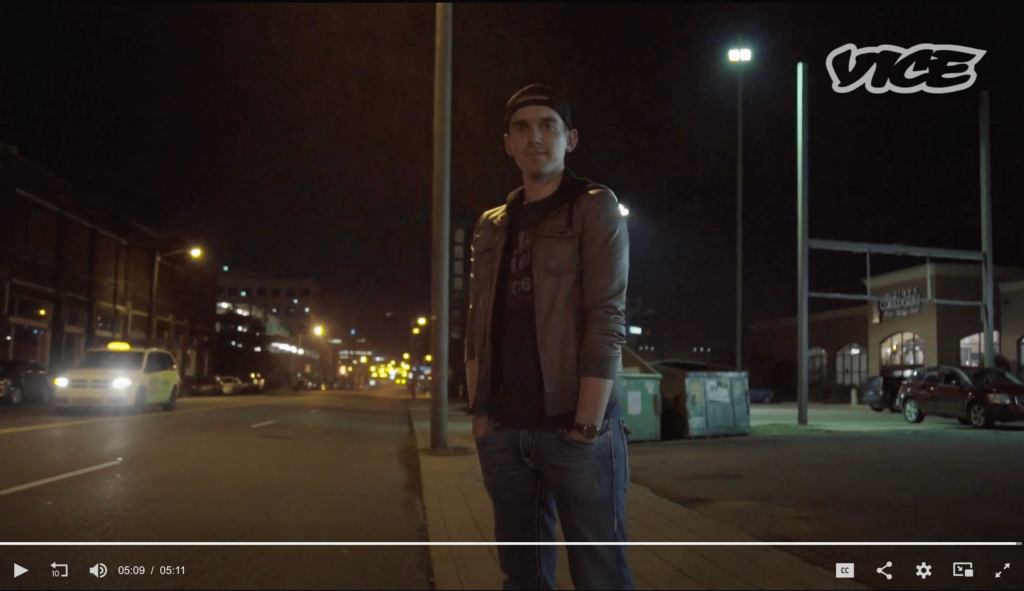Those that are newly diagnosed with HIV are at times overwhelmed by a plethora of emotions and questions. It’s important to gain advice and counsel from the wisdom of long-term survivors.
[“You Should Listen to Bob” is a simple, straight-talking set of articles from such a long-term survivor. Bob Leahy, editor of PositiveLite.com, Canada’s online HIV magazine, shares more wisdom for those newly diagnosed with HIV. His last encouraging article, offering advice to those same newly diagnosed individuals can be found here. I’m always honored to have the opportunity to carry a guest post from Bob. Thank you, Josh]

So you’re newly diagnosed. How the hell did this happen, you’re probably thinking. What‘s going to happen to me? What I do now? Who do I tell? Am I going to get sick? Can I continue working? What will people think? Will I ever date again?
So much to think about, it all seems overwhelming.
I get it. I’ve been there. I was diagnosed with HIV in 1993. But I’m still here. I’m healthy, I’m productive and I’ve never felt more fulfilled. But what you want now is not only reassurance – if you are like me – but answers to a whole bunch of questions, questions about things that represent new territory for you, and about subjects that you might think just a little bit threatening. Again, I get it.
There are a lot of resources out there to help you, and I’d reference them for you but instead I’m going to offer a suggestion which will serve you well. If Google is not your friend already, get acquainted, because you are going to need it. Be your own researcher, take the plunge and start learning about HIV. You’ll be glad you did. I’ll also offer my plain-talk take on five questions you may be asking yourself.
1. What is living with HIV going to be like?
Let’s be clear it’s not the same as living without HIV. It feels different. It is different but not necessarily all that much. Yes, you will likely have more contact with the medical profession than you’ve ever had as your health team – they are usually terrific at this – will want to be monitoring your health regularly and discussing things like treatment with you. And yes, you will have some important decisions to make. And yes, you may go through a period – likely only a period – when you don’t feel good about yourself. I did. Bu, I found, we humans have an amazing capacity for adjustment. Confront the challenges – they are far from insurmountable. Don’t hesitate to seek out help and you will emerge from all this wiser, healthier – yes healthier – and more self-aware than you’ve ever been. And there is no reason at all while you won’t feel very happy and proud of yourself. Honestly
2. Who and when to tell?
No easy answers here. You’ll need to think about this and perhaps discuss it with somebody you trust – a best friend, a family member, your partner perhaps. Here’s the bad news. Resign yourself to the fact that people you may have passed the virus on to should know about it. But as for the rest, short of legal requirements – and we’ll leave that discussion for now, because it’s complicated – who else you tell is your decision. That may evolve over time as you become more comfortable with your new status and with talking about it. My own take? There is a lot of merit telling people you feel comfortable with. Chances are those you tell will be highly supportive (they were to me), chances are you will feel better for doing so (I did). Chances are you’ll help to educate others about HIV (yay!). And, I’d argue you will be doing your part to end the stigma around HIV (trust me).
3. Where can I go for help?
You will do better if you connect with a doctor, for starters. It may also help to seek out your local AIDS Service Organization, or with others you may know who are living with HIV. Social media, and twitter in particular, hve become great paces for sharing anonymously. Look for HIV blogs or blog yourself. And never underestimate the power of sharing, and of seeking answers to all the questions you will have that I can’t answer here. There are a lot of nice people out there who want to help. Bottom line? I don’t recommend you try to go it alone – ever.
4. When to start treatment?
This is a biggie and you are in changing times, so you might hear a variety of opinions – from doctors and from others – about how long you should wait before starting to take what we call antiretroviral therapy. Certainly listen to what your doctor will say. Ask him specifically what he recommends. But also read up on it, take your time and become as informed about HIV as you can before making a decision. What do I think? I think the sooner you start treatment the better. Taking pills daily can be very easy once you have got into the routine, likely with no side effects, and the benefits to your health and to reducing the amount of virus in your blood, and thus your ability to pass on the virus, have been pretty well established. But that’s my take. You must decide for yourself if you are ready.
5. What about sex?
What about it? I know when I was diagnosed, the fear that a) I would never again be happy and b) that I would never have sex again – hit me hard. Natural reactions, but they were both completely unfounded. You will eventually realize that not all that much has changed. True, you will need to make sure that you don’t pass on the virus but trust me, that’s taken care of surprisingly easily. True, you have to think about who you have to disclose to before you have sex. And to be honest, that requires both thought and knowledge, but so many people have handily dealt with these challenges before you. There is no reason at all why you can’t have good sex healthy sex and frequent sex, if that’s your things. Or settle down with a partner. Or make babies. Life goes on – and so does sex.

[box style=”Black, Info, Shadow” ]

About the author: Bob Leahy is a career banker who was diagnosed with HIV in 1993 and has volunteered in the HIV sector ever since. He is currently the editor of PositiveLite.com, Canada’s Online HIV Magazine ( http://www.positivelite.com/ ). He lives in rural Ontario with his partner of 32 years and three loving dogs.[/box]
![[ IMSTILLJOSH ]](https://imstilljosh.com/wp-content/uploads/2020/09/9A79D7E4-5626-422E-ABC0-F601C8891E6A.png)




















